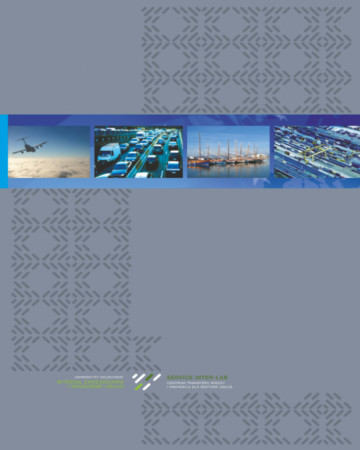
ISSN: 1644-275X
eISSN: 2353-3005
OAI
DOI: 10.18276/ptl.2019.48-01


Issue archive /
nr 4 (48) 2019
EKONOMIA SPOŁECZNA I SHARING ECONOMY W KSZTAŁTOWANIU ZRÓWNOWAŻONEGO ROZWOJU
(Social economy and sharing economy in creating sustainable development SUMMARY)
| Authors: |
Agata
Lewandowska
Uniwersytet Szczeciński |
| Keywords: | social economy sharing economy sustainable development |
| Data publikacji całości: | 2019-09-01 |
| Page range: | 10 (7-16) |
| Klasyfikacja JEL: | B59 D71 E21 L30 L31 O35 |
Abstract
The article attempts to determine whether the social and sharing economics are important components
of sustainable development, understood as the harmonious coexistence of the economy, the environment
and society. The aim of the research is to indicate the links between the social economy and the
sharing economy with the concept of sustainable development.
Social economy is based on values such as participation, solidarity and self-governance, and it plays an
important role in cities development and supports processes of forming civic society. Sharing economy
fits into social economy sphere. Social economy gives people a possibility of organizing production
and consumption patterns by independent, democratic forms of cooperation. With not fulfilled by the
country or free market needs, social economy brings innovative solutions. With this it has an impact
on local development and also on civic society development, and becomes a part of sustainable regional
development. Processes of forming and merging social economy entities, in which sharing economy is
fitting in, redounded in building new, more sustainable economy. Each component of sustainable development
(economical, environmental, social) can be performed by social economy entities that base
their philosophy on: sharing, developing local communities in opposition to negative consequences of
globalization, domination of social or ecological goals over the financial profits, including people in
need in the process of self-helping instead of providing them with fixed solutions.
Download file
Article file
Bibliography
| 1. | A European agenda for the collaborative economy (2016). Pobrane z: http://europa.eu/rapid/press-release_MEMO-16- |
| 2. | 2002_en.htm (12.08.2019). |
| 3. | Balon, K. (2017). Raport Najnowsze zmiany w gospodarce społecznej w Unii Europejskiej. Europejski Komitet Ekonomiczno- |
| 4. | Społeczny (EKES). Pobrane z: https://www.eesc.europa.eu/sites/default/files/files/qe-04-17-875-pl-n.pdf |
| 5. | (6.01.2019). |
| 6. | Beerten, R. (2002). Extension of social economy. W: European Conference of Social Economy in Central and Eastern |
| 7. | Europe. CECOP. Praga. |
| 8. | Burgieł, A. (2015). Wspólna konsumpcja jako alternatywny model spożycia i jej przejawy w zachowaniach konsumentów. |
| 9. | W: W.E. Kieżel (red.), Zachowania konsumentów. Procesy unowocześniania konsumpcji (s. 153−192). |
| 10. | Warszawa: Wolters Kluwer Business. |
| 11. | Estes, R.J. (2010). Towards Sustainable Development: From Theory to Praxis. W: N.J. Negi, R. Furman (red.), Transnational |
| 12. | Social Work Practice (s. 1−29). New York: Columbia University Press. |
| 13. | Frączak, P. (2007). Ekonomia społeczna – szerokie spojrzenie. Ekonomia Społeczna, 1, 55−56. |
| 14. | Heinrisch, H. (2013). Sharing Economy. A Potential New Pathway to Sustainability. Gaia, 4 (22), 228−231. |
| 15. | Jarre, D. (2007). Europejski model społeczny i usługi socjalne użyteczności publicznej. Możliwości dla sektora gospodarki |
| 16. | społecznej. W: E. Leś, M. Ołdak (red.), Przedsiębiorstwo społeczne w rozwoju lokalnym (s. 61−71). Warszawa: |
| 17. | Collegium Civitas Press. |
| 18. | Krajowy Program Rozwoju Ekonomii Społecznej KPRES. (2014). Pobrane z: https://www.ekonomiaspoleczna.gov.pl/ |
| 19. | download/files/ZAPROSZENIA/Projekt_KPRES.pdf (16.07.2019). |
| 20. | Stępnicka, N. (2018). Sharing economy a ekonomia społeczna i ekonomia behawioralna. Prace Naukowe Uniwersytetu |
| 21. | Ekonomicznego we Wrocławiu, 530, 46−54. |
| 22. | Sundararajan, A. (2014). Peer-to-Peer Businesses and the Sharing (Collaborative) Economy: Overview. Economic Effects |
| 23. | and Regulatory Issues. The Power of Connection: Peer-to-Peer Businesses. Committee on Small Business |
| 24. | of the United States House of Representatives. Small Business Committee Document Number 113–049. Washington: |
| 25. | U.S. Goverment Printing Office. Pobrane z: https://republicans-smallbusiness.house.gov/uploadedfiles/ |
| 26. | 1-152014_revised_sundararajan_testimony.pdf (15.01.2014). |